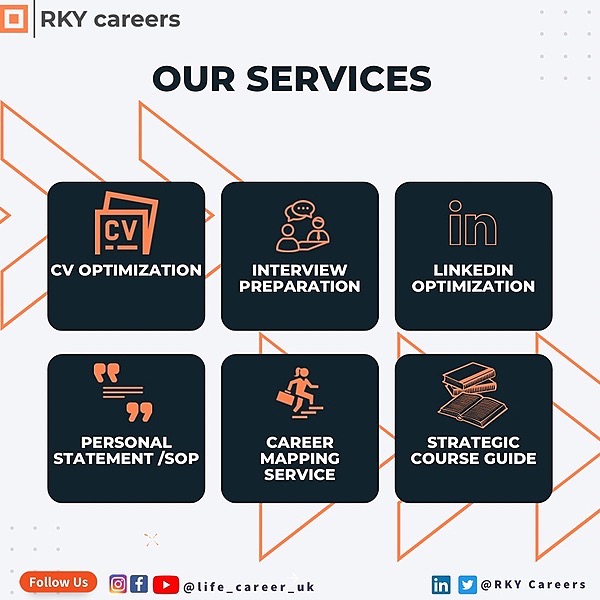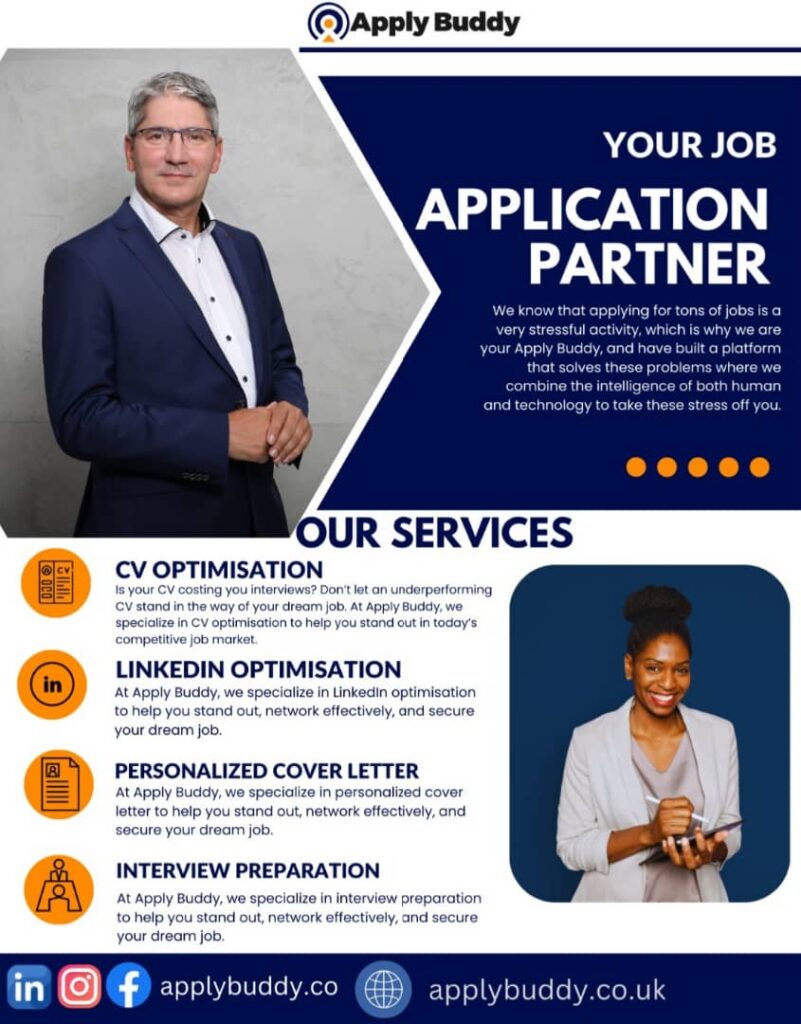Are you wondering why you are struggling to find a job in the UK after graduation? Then this post is for you. Graduating from university is a huge accomplishment, but finding a job in the UK after graduation can be an uphill battle.
You may be wondering, “Why am I struggling so much, hitting rocks and getting swamped with rejection emails or radio silence?” Here’s the deal—it’s not just you. Many graduates face significant challenges during their job search in the UK. But why? Let’s break down some key reasons and possibly proffer solutions.
Also Read: How to break into the finance industry as a fresh graduate
Common Reasons for Job Search Challenges in the UK After Graduation
There are several reasons why you are struggling to find a job in the UK after graduation. Even if you’ve worked hard for your degree, obstacles might still stand in your way. Many UK graduates are caught in a cycle of rejections, unanswered applications, and missed opportunities. But why does this happen?
Lack of Relevant Work Experience
One of the reasons why you are struggling to find a job in the UK after graduation is lack of relevant work experience. UK employers often seek candidates with hands-on experience, even for entry-level positions. This can make it tricky for fresh graduates to meet job requirements. For example, many job postings ask for years of experience that you, as a graduate, don’t have. It worsens when you realise internships and part-time jobs aren’t always enough to bridge the gap.
Limited Networking Opportunities

Networking is crucial for finding job connections, especially in the UK job market. But what is networking, exactly? It’s more than just having a LinkedIn profile. Many graduates don’t realise that building a professional network in the UK requires time and strategic effort.
Here’s an example: attending graduate fairs, networking events, or even seeking out mentorship from industry professionals can open doors that online applications can’t. But without tapping into these opportunities, you may feel isolated in your job search journey.
High Competition for Graduate Roles
One of the reasons why you are struggling to find a job in the UK after graduation is becauseThe UK job market is competitive, and it’s especially true for graduate roles. With many candidates applying for the same positions, standing out becomes a real challenge. Recent graduates often compete with others with more experience, sharper CVs, and better connections.
You should know that with thousands of UK graduates entering the workforce annually, the demand for jobs far outweighs the supply. This makes it even harder to secure a role quickly after graduation.
Also Read: How to Identify Your Career Goals and Find a Fulfilling Path
Inadequate CV and Cover Letter Customisation
One of the most common mistakes UK graduates make is submitting generic CVs and cover letters. You may wonder, “What’s the big secret I’m talking about?” The answer lies in customisation. This is a major reason why you are struggling to find a job in the UK after graduation.
UK employers appreciate when candidates tailor their applications to the specific job requirements. A CV closely matching the job description and a compelling cover letter can make a significant difference. If your CV doesn’t reflect the skills and experience relevant to the job, it can get lost. Meanwhile, you can contact RKY Careers for a personalised CV and Cover Letter optimisation.

Key Mistakes to Avoid When Looking for Jobs in the UK as a Graduate
Now that we’ve covered some reasons behind graduate job search challenges let’s move on to some critical mistakes that could slow you down. Avoiding these common errors can help you improve your chances of success.
Applying for Roles Without Tailoring Applications
One of the biggest mistakes you can make is applying for multiple jobs without tailoring your CV and cover letter to each specific role. You might think that sending a generic CV to as many employers as possible will increase your chances of getting a job. But the truth is, UK employers can easily spot an application that hasn’t been personalised. The end result is a tons of ‘Nos’ so its important to be intentional during your job search.
For example, you’re likely to get overlooked if you’re applying for a marketing role, but your CV doesn’t highlight relevant skills such as content creation or social media management. Bottom line? Tailoring your application shows that you’ve researched and are genuinely interested in the position. You know what? You don’t have to get overworked. ApplyBuddy services can help with your job applications with a guarantee of getting recruited.
Relying Solely on Online Job Applications
But wait, here’s something important: relying solely on online job applications might limit your opportunities. While it’s tempting to stick to job boards, many roles in the UK are filled through networking and direct referrals. In fact, some jobs may never even make it to online listings.
You may be wondering, “How can I increase my chances?” The answer lies in diversifying your job search approach. Attend UK networking events, reach out to recruiters, and don’t be afraid to connect with industry professionals on platforms like LinkedIn. This could open doors you didn’t know existed.
Not Preparing for Interviews Thoroughly
Another big mistake graduates often make is not preparing enough for job interviews. You’ve made it past the application stage—congratulations! But here’s the kicker: if you don’t prepare thoroughly, all your hard work could go to waste.
Graduate interviews in the UK can be challenging, and employers expect candidates to demonstrate a solid understanding of the role and the company. Practising common interview questions, researching the company culture, and preparing questions to ask at the end of the interview are essential steps. But why? Employers value candidates who are well-prepared and proactive.
How to Improve Your Job Search Strategy in the UK
Now that you know what to avoid, let’s focus on actionable steps to improve your job search strategy. But what’s the big secret I’m talking about? It’s all about being strategic, proactive, and utilising every available resource.
Also Read: Introducing ApplyBuddy: Your Ultimate Job Application Companion
Leverage University Career Services and Alumni Networks
First, do not underestimate the power of university career services and alums networks. Many UK universities offer job search support tailored to graduates, including career coaching, mock interviews, and access to exclusive job boards. These services can be invaluable in giving you a leg up in a competitive job market.
And it gets better: alum networks can connect you with professionals who have walked the same path as you. You might find mentorship or even direct job opportunities by contacting alumni working in your desired industry. The bottom is that your university’s resources are there to help, so don’t hesitate to use them.
Gain Relevant Experience Through Internships and Volunteering
One of the most effective ways to gain relevant experience is through internships or volunteering. Even if it’s unpaid or short-term, it can help you build your CV and develop the skills UK employers seek. For example, an internship in marketing or finance can give you hands-on experience that directly applies to entry-level roles in those fields.
And here’s something we can both agree on: employers value practical experience. So, while hunting for full-time positions, consider taking on internships, freelance gigs, or volunteering roles. Not only does it fill your CV with relevant experience, but it also demonstrates your work ethic and commitment to your career.
Enhance Your LinkedIn Profile for UK Recruiters
Want to know the best part? Optimising your LinkedIn profile can improve your visibility to UK recruiters. LinkedIn is a powerful job-hunting tool, but most graduates underuse it. The first step is to ensure that your profile is complete—add a professional photo, write a compelling summary, and highlight your skills and experiences relevant to the jobs you’re targeting.
Here’s how you can do the same thing: join UK job-related LinkedIn groups, follow companies you’re interested in, and engage with posts related to your industry. By being active on LinkedIn, you showcase your interest in the field and increase your chances of being noticed by potential employers.
Also Read: How to Use a Recruitment Agency fo Find a Job

Adapting to the UK Job Market as an International Graduate
For international graduates, the challenge is twofold: not only do you need to find a job, but you also need to adapt to a new job market and, in many cases, navigate visa requirements. But what is the UK job market like for international graduates?
Understanding UK Work Culture and Expectations
The UK work environment might be different from what you’re used to. For example, punctuality, teamwork, and clear communication are key to thriving in UK workplaces. Understanding these expectations can help you adapt more smoothly to your new job.
Here’s an example: in the UK, employers value initiative and problem-solving skills. Demonstrating these during your job interviews can give you an edge over other candidates. Adapting to the UK work culture is essential for international graduates seeking employment.
Navigating Visa and Work Authorisation Requirements
But why do visa requirements play such a crucial role? For international graduates, securing a work visa can be one of the biggest hurdles. The UK has specific visa programs, such as the Graduate Visa, designed to help international students stay and work in the UK after finishing their studies.
You may wonder, “How can I improve my chances of securing a visa?” The answer lies in understanding the specific visa options available to you and ensuring that your job applications align with roles that offer visa sponsorship. It’s essential to research employers open to hiring international graduates and familiarise yourself with the necessary visa requirements.
Conclusion
In conclusion, finding a job in the UK after graduation can be challenging, but you can stand out from the competition with the right tools and support. ApplyBuddy is here to help you every step of the way. Whether you need tailored CV reviews, expert advice on interview preparation, or tips on optimising your LinkedIn profile to attract UK recruiters, ApplyBuddy has you covered.
We also provide personalised job search strategies, guidance for international graduates navigating visa requirements, and access to exclusive networking opportunities. Ready to land your dream job? Let ApplyBuddy be your ultimate job search partner!
What are the main reasons graduates struggle to find a job in the UK?
Graduates face challenges finding jobs in the UK because of a lack of relevant work experience, limited networking opportunities, and high competition for graduate roles. However, these reasons are surmountable with the right approach.
How can I improve my chances of getting a job in the UK as a recent graduate?
You can improve your chances by tailoring your CV, leveraging university career services, gaining internship experience, and optimising your LinkedIn profile for recruiters. Also look out for bootcamps such as the rky careers bootcamp that give actual work experience.
What common mistakes should I avoid in my UK job search?
Avoid submitting generic applications, relying solely on online job portals, and neglecting interview preparation. Another thing to avoid is not being intentional about each and every application. Also, never underestimate the power of networking.
Is networking important for finding a graduate job in the UK?
Yes, networking is crucial. Building professional connections through events, alumni networks, and LinkedIn can open doors to opportunities that may not be advertised online.
